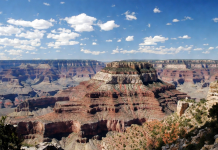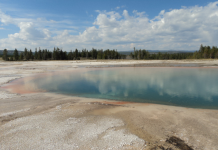For a planet that we call home, Earth is only 82% habitable, according to the latest calculation that highlights exoplanet habitability.
Still, compared to the rest of the planets in our solar system, Earth is the best candidate to develop life and countless species of aquatic and terrestrial animals and vegetation.
Scorching summer, harsh winter, hasty spring and autumn, these features definitely sound related to a planet with a habitability index of 82%. If we take into account Australian wildlife, poor Earth’s score would drop like a sinking rock.
The actual factors that summed up Earth index rating were based on atmospheric pressure, geology, access to water and the potential absorbed energy from its nearest sun.
Although a habitability index of 82% would seem more than satisfactory, for anyone with no expertise in this field, considering our genesis took place on this planet, the estimated index should be around 100%, setting aside the damage we caused to our planet in the last century alone.
Astronomer Rory Barnes from the University of Washington explains Earth’s low score is due to the close range to the Sun.
Our planet is rather closer to the inner edge of the habitable zone of the solar system and yet, mankind has flourished along the millennia, until this day when we no longer consider our home fit for habitability, inexorably turning our eyes to other places that one day we may call home.
Some people may have a different opinion in reference to our planet being too hot to live on according to the rigorous living standards, raising the fact that a large part of the surface is constantly exposed to incredibly low temperatures like Siberia.
Hypothetically, if we were to spot Earth with our current technology, we would logically assume that the temperatures would be too hot for sustaining life.
In this scenario, for us to be able to adapt to Earths climatic conditions, it would require great efforts to support reasonable living settings. Or maybe humanity’s requirements are too idealistic and demanding for the endless planets that could host our utterly greedy character.
Starting from the same premise, an alien civilization would have come across Earth looking for possible life forms might presume it uninhabitable and focus their attention towards other planets with a higher habitability index.
However, Earth’s alleged low rating can also be an indicator of the human species’ endurance and adaptability to severe living conditions, which should make astronomers think twice before jumping to conclusions whether a foreign planet is inhabitable or not. If we made it so far here, we can thrive anywhere else, especially with the ever evolving technology.
In a grim distant future when we will have to abandon our dying planet, most likely we will not benefit from the perfect conditions the scientists deem we need. This mindset should be adopted when considering a new home for mankind, Earth being the greatest example of our ability to prosper and succeed, no matter how dire the circumstances appear to be.
Since we are not alone in the Universe, we must accept that surely other alien species too, did not evolve in the perfect conditions, for this is the key in evolution itself: a species must face improper conditions to continuously adapt and evolve, in order to achieve transcendence, or how else would one living entity gradually reprogram itself to excellence if not determined by precarious circumstances.
Nothing grows in the shadows, and this applies best to human the race. Our progress was achieved with each harrowing step leading out of the comfort zone to supersede our frailty.
references:
Comparative Habitability of Transiting Exoplanets







